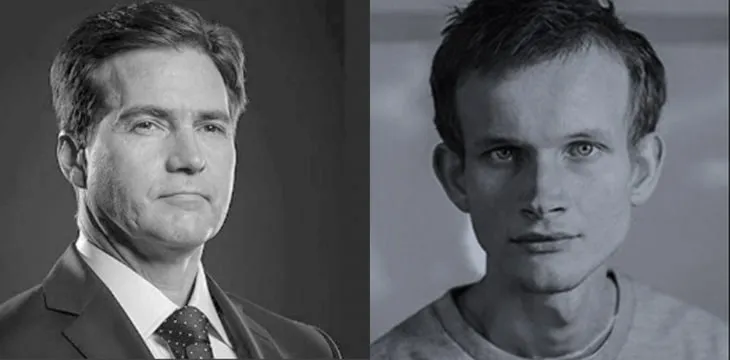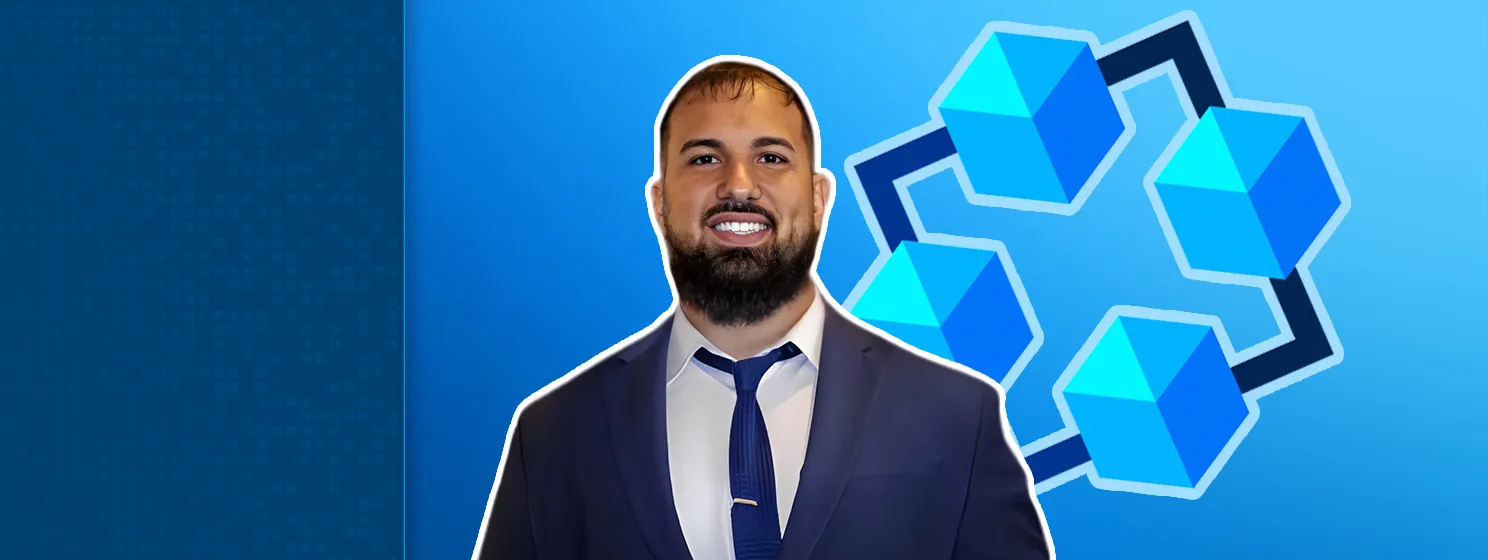|
Getting your Trinity Audio player ready...
|
The ongoing war of words between Dr. Craig S. Wright and Ethereum co-founder Vitalik Buterin continued in April, this time over Dr. Wright’s patent portfolio.
Buterin suggested patenting blockchain technologies shows a poor understanding of blockchain—but does he fully understand the world in which blockchain operates?
Buterin kicked things off on April 23rd with the following tweet:
If you're bragging about how many "blockchain patents" your country/company/organization has, you don't understand blockchains.
— vitalik.eth (@VitalikButerin) April 23, 2020
Most considered it another swipe at Wright and the company where he serves as chief scientist, nChain.
Dr. Wright has applied for over 800 patents related to blockchain technology, of which up to 100 have been granted. These include one describing a “registration and automatic management method for smart contracts executed by blockchain.” Since smart contracts are Ethereum’s key feature, it’s clear why he wouldn’t want an opponent holding intellectual property rights.
Dr. Wright did not respond to Buterin directly as he has not had an official Twitter account for some time. However, when CoinGeek reached out for comment he said in response:
“In fact most of the people involved in Blockchain are involved in patenting badges do it way worse than I do. More importantly, Bitcoin was supposed to end up as a corporate system. I always explained this. The ‘code is law’ thing was something that I always fought against and was stupid even in the Satoshi days.”
He has a point. Searching for “blockchain” and related technologies on a patent search engine delivers many results. Applicants and holders include a list of well-known names in the blockchain world including Greg Maxwell, Andreas Antonopoulous, Hal Finney, Adam Back, and Erik Voorhees.
BSV supporters: Actually, it’s you who doesn’t understand
Numerous others involved in the Bitcoin SV (BSV) community responded to Vitalik Buterin’s tweet, including investor, entrepreneur and Bitcoin BSV supporter Calvin Ayre:
actually, you don't understand Blockchains. You can not even copy Craig correctly. You tech has been used for more scams in the ICO shitecoin storm than the world has ever seen. History will not be kind. Patents on the other hand are a real thing.
— Calvin Ayre (@CalvinAyre) April 23, 2020
Ayre went on to accuse Buterin of copying Dr. Wright’s work and of providing a platform for criminal use, saying “You can not even copy Craig correctly,” and “history will not be kind.”
Other responses included:
And you don’t understand how to build an empire
— $Boase (@b0ase) April 24, 2020
Turns out, you don’t understand patents.
— Kurt Wuckert Jr | GorillaPool.com (@kurtwuckertjr) April 23, 2020
https://twitter.com/CoinstorageGuru/status/1253435359456722945
If you don't have patents to protect your inventions from criminals and fraudsters, either you don't understand patents, or else you are what we need to protect Bitcoin against.
— Mike Murphy (@m_murfy) April 24, 2020
Whether Buterin intended the tweet as a flippant comment, troll, or otherwise, it served mainly to stoke the rivalry between Ethereum and Bitcoin. BSV supporters frequently refer to Ethereum as a “hobby platform” that can’t scale to the levels required to gain global adoption—a reference to Ethereum’s history of technical debacles, protocol uncertainty, and tendency to falter when one of its projects becomes popular.
BSV, blockchain, and patents
nChain itself has over a thousand patents pending and granted, according to its CEO David Washburn. The company’s IP portfolio is well-known in the blockchain world, with supporters and opponents often citing it in their arguments. The non-profit Bitcoin Association holds a number of blockchain-related patents and licenses them for free to BSV projects (or to any others willing to negotiate a fee).
Notably, Buterin himself has never attempted to patent any of his inventions. This may indicate he either doesn’t understand patents… or that he does.
Vitalik’s original message would suggest patents are not necessary or enforceable in the blockchain world. This view is somewhat naive and reflects the “code is law” mantra often repeated by blockchain’s crypto-anarchist set.
While innovative code does allow users to skirt around regulations at times, human law tends to have the final say. A blockchain network attempting to operate outside regulations could function, but ultimately would never be able to gain the widespread adoption it needed to prosper.
“Bitcoin stock exchanges” either never lasted long or never gained large user bases. Digital asset exchanges have gradually fallen into line with standard KYC/AML laws, and those that haven’t are monitored, shut down, or chased from their jurisdictional region. Human law, at least so far, has proved it can trump or at least limit use of technologies.
What might have been?
The Ethereum concept first emerged following Buterin’s 2013 whitepaper on a scripting language for Bitcoin. Failing to find support among Bitcoin fans at the time, he (along with developers Gavin Wood and Charles Hoskinson, and investor Anthony Di Iorio) decided to create an entirely new network.
For the record, Dr. Wright pointed out that Wood himself is also an active patenter:
“Gavin Wood, the coder who really invented Ethereum and that Vitelik hides behind in reality has multiple patents to his name including many on Blockchain. These are not held defensively.”
Moreover, Wright has insisted that he intended for programmable scripting to be a Bitcoin function, and development on the Bitcoin BSV protocol since November 2018 indicates that is true.
Though Wright and Buterin are frequently adversaries these days, it seems that—at least at one point in time—they shared a similar vision for Bitcoin. Both eventually became disillusioned with BTC’s narrow vision and eventually decided to build outside that system.
Buterin subsequently posted a more conciliatory-sounding tweet with a poll:
If we stopped fighting each other and learned to work together for the betterment of humanity, our rate of technical/economic/social progress would increase by:
— vitalik.eth (@VitalikButerin) April 30, 2020
It could simply be another signal that serious people in blockchain shouldn’t pay too much attention to Twitter chatter… or that many commentators have unrealistic expectations of both humans and their code. Either way, the rivalry and public spats are unlikely to resolve themselves. Patent law, in some form, will likely be the adult in the room that steps in to clear things up.

 07-18-2025
07-18-2025 





